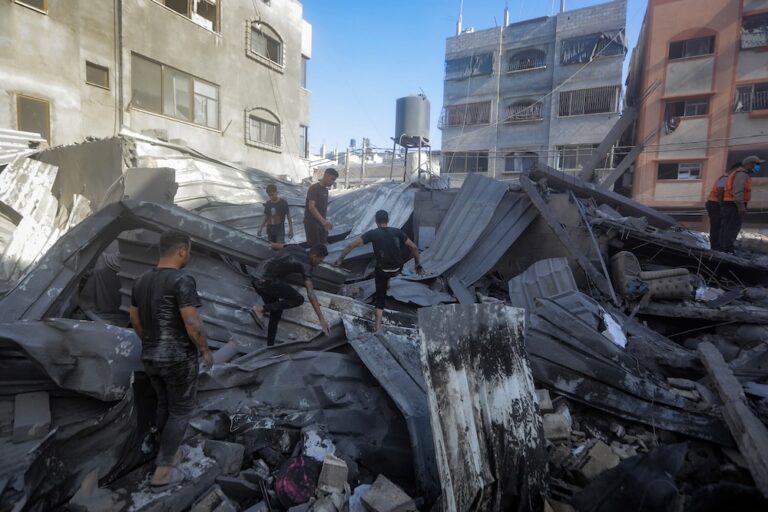(IPI/IFEX) – The following is an IPI press release: Vienna, 6 March 2001 Press Freedom Violations in Israel and Occupied Palestinian Areas (28 September – 28 February 2001) In December, the International Press Institute (IPI) highlighted in a detailed report the number of injuries and other press freedom violations against journalists and media professionals in […]
(IPI/IFEX) – The following is an IPI press release:
Vienna, 6 March 2001
Press Freedom Violations in Israel and Occupied Palestinian Areas (28 September – 28 February 2001)
In December, the International Press Institute (IPI) highlighted in a detailed report the number of injuries and other press freedom violations against journalists and media professionals in Israel and the Occupied Palestinian Areas. The report documented all known such cases since the start of the Palestinian uprising on 28 September 2000. IPI has now updated and revised its report, adding cases of press freedom violations since the beginning of the crisis until 28 February 2001.
Since the beginning of the uprising, journalists have carried out their duties under extremely dangerous conditions, and both the Israeli and Palestinian authorities appear to be trying to prevent negative media coverage of the clashes.
The political climate throughout the Palestinian territories has turned explosive. Violence and bloodshed has taken over the political scene. The clashes, which began five months ago, have already left over 420 people dead, around 80 percent of whom were Palestinian. The numbers of people wounded are estimated at well over 10,000.
The summary of incidents involving press freedom violations in the appendix of the report display a chilling pattern. Out of a total of 84 incidents, including two killings, at least 30 journalists were shot and 24 were physically assaulted in other ways. Four broadcasting stations were effectively censored (due to shutdown by order of authorities or because of missile attacks), one foreign journalist’s accreditation was revoked, 8 journalists were harassed, at least two were seriously threatened, three were denied entry to Israel from the West Bank and all Palestinian journalists were denied Israeli press cards and thus severely obstructed in carrying out their profession.
Sixty-four press freedom violations were carried out by Israeli authorities. At least five of these, however, have been contested. Seven violations were committed by Israeli settlers, at least one of which has been contested. Another six violations were carried out by Palestinian authorities, one by Palestinian paramilitaries, and five by Palestinian civilians, at least one of which has also been contested.
In the conclusion of the report, IPI recommends that the Israeli security forces review their guidelines concerning protection of journalists; in particular, neither journalists nor the facilities in which they work should ever be military targets. Furthermore, the Palestinian authorities should end their arbitrary arrest and intimidation of journalists. They should also refrain from closing or censoring media outlets.
ENDS
Read IPI’s report at http://www.freemedia.at/isrpalre.htm


